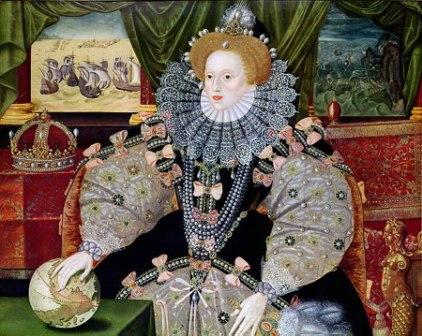 |
| A modern interpretation, after the Roman style, of the poet Ovid. Picture acquired through Wikimedia Commons courtesy the artist, Aureola. Image public domain. |
Shakespeare admired Ovid, (43 B.C.-17 A.D.) and he drew a great deal of inspiration from his body of work. Ovid's Metamorphoses was the work that Shakespeare appears to have studied the most; Metamorphoses was a collection of stories from the ancient Greek and Roman myths. The Elizabethan people regarded the knowledge and aesthetic of the classical world as a muse for art, theatre, literature, and even decorative etching on armor.
Francis Meres was an Elizabethan author who received his M.A. at Oxford and wrote the Wits Treasury, which was a valuable compendium of information on Elizabethan poets. Wits Treasury is acknowledged in the Shakespeare circle as being the first account with merit on on the early works of Shakespeare, even establishing some basic chronology of the publications of the works. Meres, who was well acquainted with Shakespeare's gift, compared the Bard's work to Ovid's, saying:
"The sweet witty soul of Ovid lives in mellifluous and honey-tongued Shakespeare."
Sources:
Francis Meares, Alumni Cantabrigienses, (online edition) Cambridge University Press.

